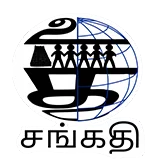
The government must consult teachers before making proclamations on what teachers should wear to school, Dr. Sujata Gamage and Tara de Mel, Co-coordinators, Education Forum Sri Lanka, said yesterday, issuing a press release.
“According to news reports, the Minister for Education, and other ministers, are busy making proclamations on what teachers should wear to school. There is no indication that they have consulted the main stakeholders, in this case, the teachers,” the press release said.
The Co-coordinators of the Education Forum said that there is already a guideline on attire for teachers in Section 5.1.b of Circular 2012/3 on “Code of Ethics and General Rules on the Ethical Conduct of Teachers”. Under this, teachers are required to: “dress in culturally appropriate, clean, smart, and well-tailored clothing, maintaining decency and modesty, at all times.”
Gamage and de Mel said insisting that the saree is the only appropriate attire, especially at this time when the teachers are struggling to provide for their families, get to work on time, and teach kids who are very likely to come undernourished or hungry, would be inconsiderate.
Given below are excerpts of the press release: “In addition, it would be a violation of their fundamental rights and a violation of the Constitution where the transfer and disciplinary control of all educational personnel is vested with the provinces.
“During the past three years, even before the onset of the Corona epidemic, in April 2020, we have been in contact with teachers from across the country. We are impressed by our teachers who rose to the task of teaching children using creative methods that suit each locality when the pandemic severely limited students’ access to education. At the same we were dismayed by how little help they got from the Center except for top-down directives. This contrasts with responses by the government of Bhutan, for example, which supported teachers from day one by introducing abbreviated curricula and providing resources on distant education.
“The present economic crisis requires more than ever the need for the line ministry to support teachers and schools to do their job under difficult circumstances by giving them the resources they need, not more top-down directives or unfunded mandates.
“Some of the more important actions for the Ministry are as follows: Reduce the examination burden so that children don’t need to fill notebook after notebook with facts preparing for exams when school supplies are beyond the reach of many; allow teachers the freedom to focus on learning outcomes and modify teaching schedules and methods in consultation with authorities closest to them- i.e., school principals and zonal and divisional directors; allow teachers the freedom to dress comfortably and engage with their students in activities outside of the classroom using local resources and stop issuing circulars on day-to-affairs and focus on education reforms that are practical under the present economic crisis which may go on for 10 years or more judging by international experiences.”

